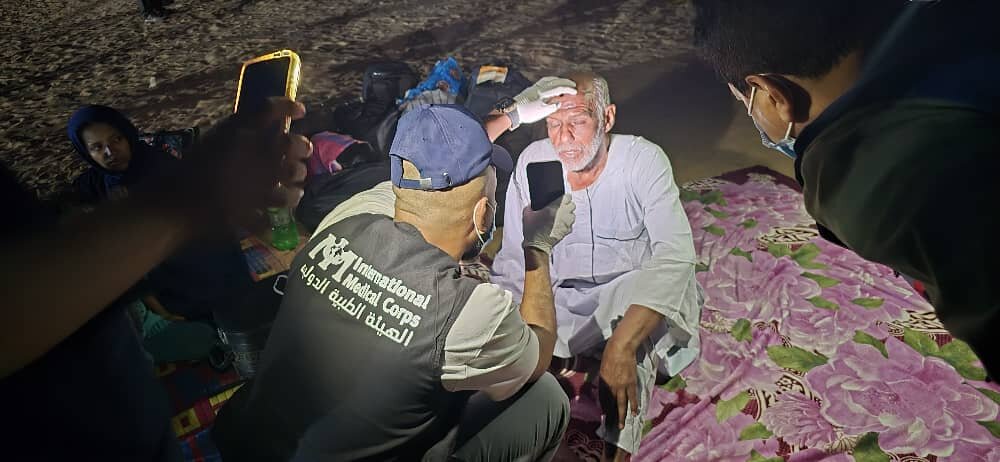By Mike Hall | Senior Advisor
Since mid-April 2023, the conflict in Sudan has caused the displacement of more than 11 million people, with more than 2 million crossing into neighboring countries to find safety. A significant number of the displaced have taken shelter in Kufra, a remote and sparsely populated area located in southeastern Libya. According to UNHCR, the country now hosts an estimated 210,000 Sudanese refugees. This influx continues at a steady rate, with approximately 300 to 400 new arrivals entering informal camps daily.
So far, 125,020 health certificates have been issued to the Sudanese population through Kufra's health authorities. These certificates allow Sudanese to move to different locations within Libya, to work and to access healthcare. Unfortunately, the shortage of laboratory consumables and reagents means the test required to issue these certificates sometimes is not able to take place, which means that more Sudanese stay in Kufra are not able to access healthcare until they receive the certificates. Although data from health authorities is not yet available, there have been a few suspected malaria cases in the region. Health authorities have indicated that the national surveillance team will visit Kufra to conduct further investigations and analysis of the suspected cases, and determine appropriate measures to address it.
Sudanese refugees are facing extremely challenging living conditions, which are expected to worsen during the winter and as more individuals arrive in Libya, particularly in Kufra. Recently, an informal settlement housing many Sudanese families was evacuated at the request of the property owner, forcing most displaced families to seek shelter in nearby settlements. More settlements are preparing for eviction, which is likely to result in overcrowding in the remaining ones.
International Medical Corps Response
The International Medical Corps team in Kufra continues to monitor the evolving humanitarian needs of Sudanese refugees, which go beyond health assistance. Refugees are facing a range of significant challenges, including inadequate healthcare services, substandard shelter conditions, limited access to clean water and insufficient food supplies. There is an immediate need for non-food items such as blankets, mattresses, winter clothing and hygiene kits, and dignity kits for women and girls. Food assistance is also critical, as many heads of households struggle to afford enough food for their families due to rising market prices and a lack of financial support. Additionally, contaminated water, inadequate hygiene practices and insufficient sanitation facilities in refugee settlements in Kufra pose significant risks for disease outbreaks and other health issues. The situation is further exacerbated by the lack of capacity to manage solid waste effectively.
International Medical Corps continues to work closely with the Ministry of Health and the Crisis Committee to respond to the needs of both Sudanese refugees and host communities in Kufra. So far, we have provided 13,303 primary healthcare consultations and 201 referrals for specialized care at nearby facilities.
International Medical Corps has deployed two doctors at Atia Alkaseh Hospital and at the Refugees Admission and Service Center to provide secondary healthcare consultations. So far, we have provided 3,323 consultations to the refugees and host communities, addressing specialized health needs such as surgical care, advanced diagnostics and chronic disease management.
In addition to the healthcare consultations, our community health workers have conducted 73 health-awareness campaigns, engaging 1,090 people across refugee settlements and host communities. These sessions focus on hygiene practices, nutrition, chronic disease prevention and maternal health, empowering communities to adopt healthier behaviors and reduce preventable health risks.
We completed a two-week training program endorsed by the Ministry of Health for eight national nurses in December. This practical training enhanced the technical skills of the nurses, improved service delivery and ensured adherence to best practices, contributing to the sustainability of healthcare services in supported facilities.
Project reports on GlobalGiving are posted directly to globalgiving.org by Project Leaders as they are completed, generally every 3-4 months. To protect the integrity of these documents, GlobalGiving does not alter them; therefore you may find some language or formatting issues.
If you donate to this project or have donated to this project, you can receive an email when this project posts a report. You can also subscribe for reports without donating.
